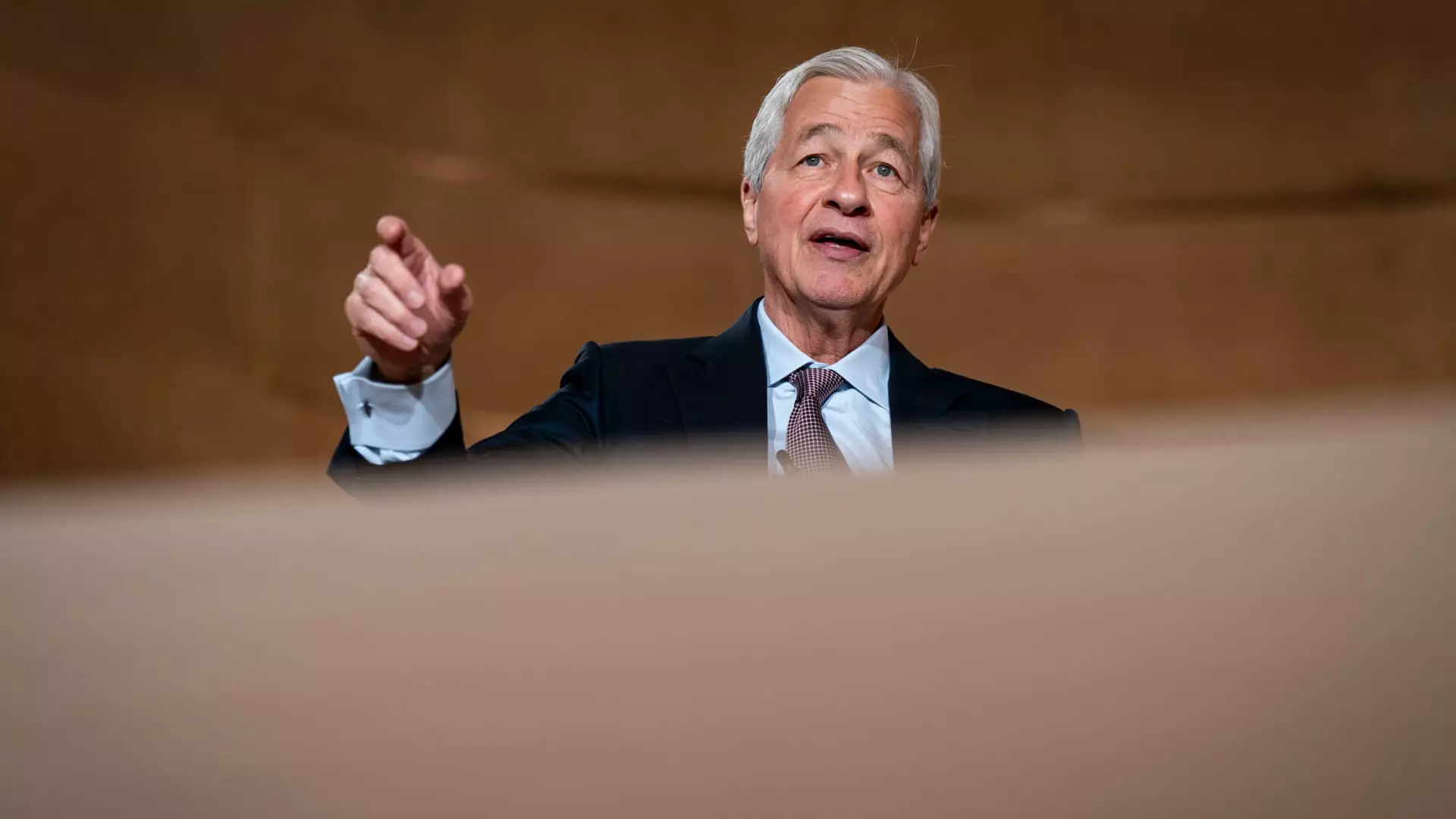In a telling reflection on contemporary economic conditions, Jamie Dimon, the CEO of JPMorgan Chase, has articulated critical concerns about the prevailing risks stemming from record U.S. deficits, economic tariffs, and rising international tensions. His remarks during the bank’s annual investor day serve as a wake-up call against the backdrop of shrinking vigilance among investors and policymakers in face of growing uncertainties. The contradictory narrative of a booming stock market juxtaposed with underlying fragility is emblematic of a deeper malaise in economic governance.
Dimon’s stark assertion of complacency offers a penetrating insight: “You all think they can manage all this. I don’t think they can.” This skepticism towards central bankers highlights a significant oversight among economic stakeholders who remain detached from the realities of fiscal irresponsibility. With deficits ballooning at unprecedented levels, one cannot help but wonder whether we are witnessing a lurking disaster, patiently waiting for a moment of reckoning. The sentiment that markets have returned from their lows with a sense of endearing optimism is precisely the kind of naivety that Dimon warns against.
Inflation: An Imminent Threat Ignored?
Central to Dimon’s apprehension is the rising specter of inflation and its dark companion, stagflation—an economic condition many had hoped was relegated to the annals of history. He posits that the market is underprepared for the adverse implications of stagnating growth coupled with rising consumer prices. The discomforting reminder that the last half-century has not conditioned us for such adversity deserves careful contemplation. It’s troubling to witness stock market enthusiasm prevail while critical signals are downplayed. With economic analysts tracing a trajectory heading towards potential stagnation, the complacency manifested in stock valuations becomes incredulously dangerous.
The crux of Dimon’s perspective lies in the troubling forecast for S&P 500 earnings, which he predicts will stagnate sharply—from an anticipated growth of 12% down to 0%. Such a steep decline reflects turbulence brewing beneath a veneer of apparent recovery. Investors may be lulled into a false sense of security, but the impending fallout for firms that previously enjoyed growth glimmers with the inevitable retreat of their stock prices. In this environment, it becomes essential to challenge this prevailing euphoria and confront the economic fundamentals head-on, lest we be blindsided by gravity’s inevitable pull.
The Ticking Clock of Corporate Behavior
Significantly, Dimon’s admonition resonates with corporate behavior observed in the banking landscape. A prevailing “wait-and-see” mentality among corporations underscores an economic climate riddled with hesitation. This cautious approach toward acquisitions and investments is not merely an indication of conservative sentiment; it reflects a legitimate fear of the shifting economic tides. Companies are grappling with uncertainties that extend well beyond immediate fiscal assessments, constituting a meaningful barrier to constructive economic momentum.
The anticipated decline of investment banking revenues by a mid-teens percentage further underscores a troubling economic forecast. Investors must grapple with the implications of a constricting landscape for corporate profits, exacerbated by the uncertainty clouding the fiscal policy horizon. Perhaps the true alarm is not just in the short-term fluctuations of earnings, but in the long-term trajectory shaped by strategic hesitance and cautious investment behavior—a fact even reflected in Dimon’s remarks on his potential succession plans that project an imminent transition in leadership.
The Path Forward: Embracing Pragmatic Liberalism
In navigating these treacherous waters, one must advocate for a thoughtful embrace of center-wing liberal principles that prioritize economic prudence and social responsibility. Dimon’s caution invites a reflection not merely on market trends, but on the collective responsibility of economic leaders to foster stability amid discord. As the American economy finds itself aloof from the social fabric it necessitates, policymakers and citizens alike must advocate for accountability and transparency that echoes beyond mere stock market figures.
As we stand on the precipice of uncertainty, it is crucial to challenge the complacency that narratives of economic recovery breed. Rather than accepting an illusion of stability, we must confront the realities of deficits, trade, and stakeholder hesitation. The journey forward requires more than merely hoping for the best. It necessitates a deliberate and informed approach, fostering an economic environment resilient enough to withstand the shocks that history warns us are likely ahead. The stakes are high, and it is a responsibility that rests upon all of us.

Leave a Reply